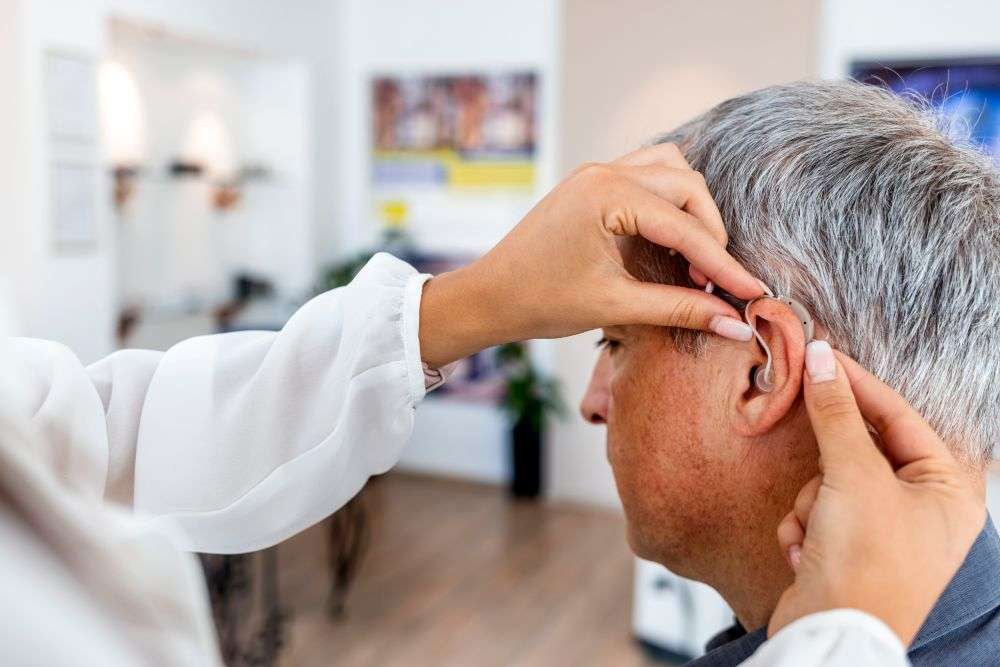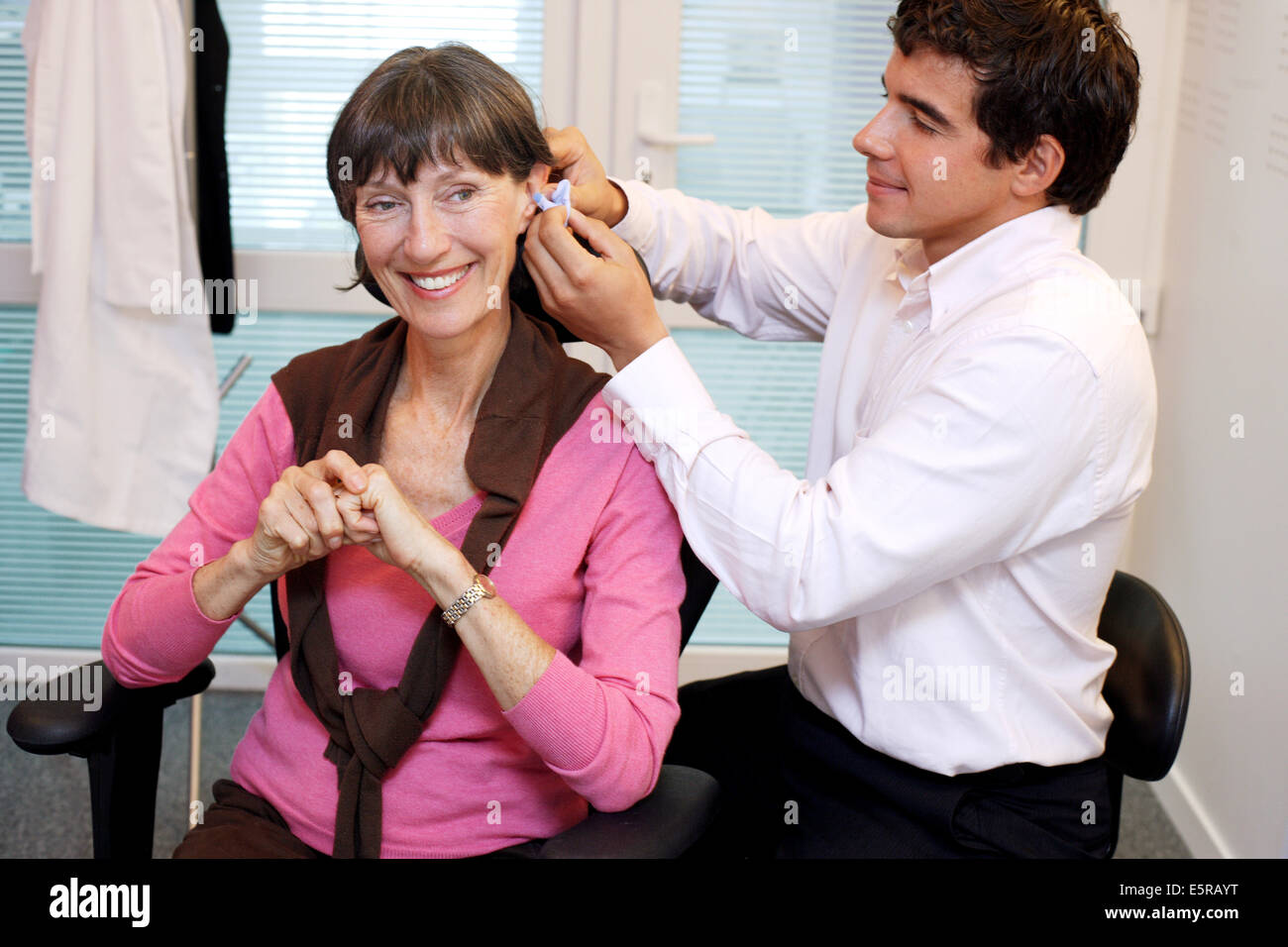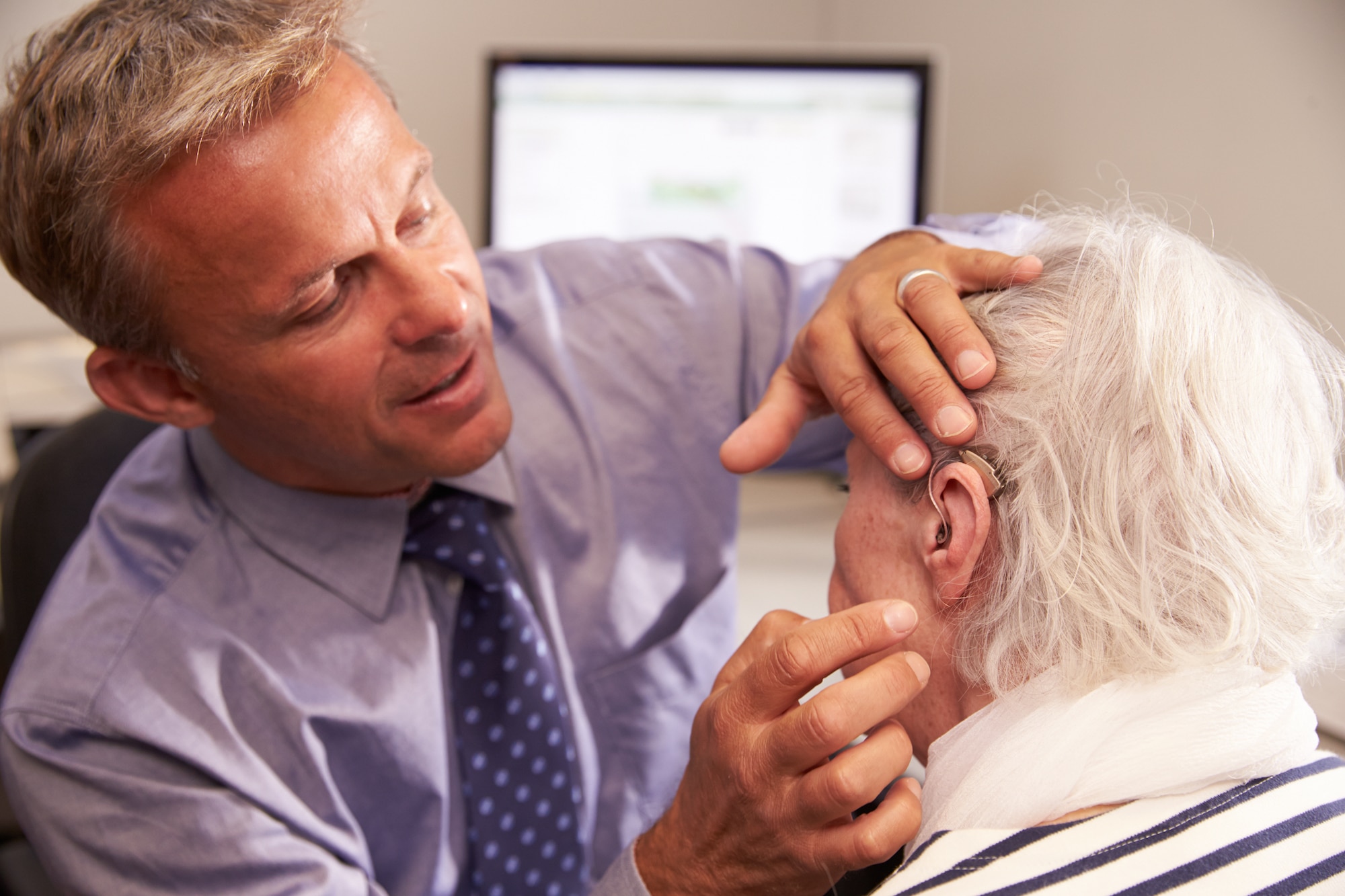In 2024, considering a career as a Hearing Aid Specialist is a promising opportunity for several compelling reasons. Firstly, the demand for these specialists is projected to grow by at least 8% by 2029, according to the U.S. Department of Labor, indicating a robust job market for new entrants in this field. Secondly, Hearing Aid Specialists play a crucial role in evaluating hearing loss, providing essential services that significantly improve clients’ quality of life. Additionally, as an integral part of the healthcare community, these professionals enjoy the rewarding experience of helping individuals regain their hearing capabilities. Thirdly, the median salary for Hearing Aid Specialists was reported to be around $59,020 in 2022, with opportunities for higher earnings as experience increases. Moreover, many specialists find flexible work environments, allowing for personalized work-life balance. Lastly, training to become a Hearing Aid Specialist typically requires modest educational prerequisites, making it an accessible career for many. Thus, for those seeking a fulfilling and stable profession, becoming a Hearing Aid Specialist in 2024 is an excellent consideration.

hearing aid specialist
Career Flexibility: Diverse Roles and Responsibilities of Hearing Aid Specialists
A hearing aid specialist is a vital healthcare professional who plays multiple roles in the realm of auditory health. Primarily, they focus on the distribution and maintenance of hearing aids, but their responsibilities extend far beyond mere sales. These specialists are trained to conduct comprehensive hearing tests, which they administer using specialized medical equipment. This testing not only evaluates the extent of hearing loss but also assists in the selection of the most suitable hearing aids tailored to individual patient needs.
One of the key responsibilities of a hearing aid specialist is the fitting of hearing aids. This includes taking precise ear impressions and designing custom ear molds, which ensures that the devices are comfortable and effective. Furthermore, specialists provide essential ongoing support to their patients after fitting. They monitor the efficacy of the hearing aids, making necessary adjustments to enhance their performance based on the patient’s feedback.
The job market for hearing aid specialists is quite promising. According to the U.S. Department of Labor, employment in this field is projected to grow by approximately 8% by 2029. This growth is driven by an aging population and an increasing awareness of hearing health, emphasizing the versatility and necessity of these specialists in modern healthcare. Moreover, those inclined toward this career path can pursue training programs and licensure through various accredited institutions.
Overall, hearing aid specialists enhance their job flexibility and marketability through diverse roles, contributing significantly to the auditory wellbeing of individuals within their communities.

hearing aid specialist
Competitive Salary: What You Can Earn as a Hearing Aid Specialist in 2024
As a hearing aid specialist, you can expect a promising career trajectory, especially with the growing demand for services in the hearing healthcare field. In 2022, the median salary for hearing aid specialists was approximately $59,020, with expectations for increases in the coming years as the industry continues to expand.
According to recent data, employment opportunities for hearing aid specialists are projected to grow by 8% or more by 2029, driven by an aging population and rising awareness of hearing healthcare. This profession offers a chance not only for financial stability but also for personal fulfillment in enhancing the quality of life for individuals with hearing loss.
Typically, hearing aid specialists engage in various tasks, including administering hearing tests, selecting suitable hearing aids, assessing hearing instrument efficacy, and providing necessary maintenance and adjustments for devices. Additionally, as the technology behind hearing aids evolves, specialists will need ongoing training and education to stay current with advancements.
The demand for hearing aid services is expected to rise alongside technological advancements in hearing aids, including digital hearing aids, which are becoming increasingly popular. This growth implies lucrative prospects for those within the profession, especially for top earners who could make around $75,150 annually, positioning the role as a significant contributor to the healthcare sector.

hearing aid specialist
Impact on Lives: The Rewarding Experience of Helping Those with Hearing Loss
Hearing aid specialists play a crucial role in enhancing the lives of individuals experiencing hearing loss. By fitting and adjusting hearing aids, they improve clients’ ability to communicate and engage with their surroundings. This improvement significantly elevates the overall quality of life for those affected, making the profession deeply rewarding. Clients often share heartfelt testimonials about how hearing devices have allowed them to reconnect with family, friends, and the world around them.
According to the Bureau of Labor Statistics, the demand for hearing aid specialists is projected to grow by at least 8% by 2029, highlighting the increasing recognition of hearing health as a vital aspect of overall well-being. This trend reflects a growing awareness of the importance of addressing hearing impairment, which is often linked to social isolation and diminished mental health. Hearing aid specialists are trained to evaluate hearing loss using specialized medical equipment, ensuring that each client receives personalized care tailored to their unique needs.
The role of a hearing aid specialist encompasses various responsibilities, including administering tests, interpreting results, and recommending suitable devices. Additionally, they assist clients in adapting to new technology, which can sometimes be a challenging transition. This supportive guidance not only fosters trust but also cultivates long-term relationships with clients, making their journey toward better hearing a collaborative effort. In essence, a career in this field not only offers financial stability, with a median annual salary of approximately $59,020, but also provides profound satisfaction through the positive impact on clients’ lives.

hearing aid specialist
Required Training and Licensing: Steps to Become a Hearing Aid Specialist
Becoming a hearing aid specialist involves specific educational and licensing steps essential for success in this field. Firstly, a high school diploma or equivalent is the minimum requirement, although many employers prefer candidates with post-secondary education in related areas. Candidates may consider pursuing certification programs that offer specialized training relevant to hearing aids and audiology.
Training programs often encompass vital aspects like the mechanics of hearing aids, the anatomy of the ear, and diagnosing hearing impairments. Additionally, understanding the various types of hearing instruments and their functionalities is critical for providing effective services. It’s also advisable for aspiring specialists to gain hands-on experience through internships or apprenticeships, which can significantly enhance practical skills.
Licensing requirements vary by state, but obtaining a license is generally a critical step. Many states require completion of an approved training program and passing a licensing examination that assesses knowledge and competency in fitting and dispensing hearing aids. For example, in Virginia, the Board for Hearing Aid Specialists oversees the licensing process, ensuring candidates meet the professional standards required by law.
Continuing education is also vital for maintaining licensure and staying updated on advancements in hearing technology and practices. This focus on ongoing training helps specialists remain competitive and knowledgeable about the evolving industry. With the demand for qualified professionals growing, particularly in the healthcare sector, this profession offers a promising career path with opportunities for advancement.

hearing aid specialist
Networking Opportunities: Building Connections in the Hearing Care Community
Exploring the networking potential within the hearing aid industry is essential for professionals ranging from audiologists to hearing aid manufacturers. Building these connections can lead to valuable mentorship, fostering collaborations that enhance knowledge and skill-sharing within the field. Engaging with industry peers provides numerous avenues for career advancement, especially as the demand for hearing care specialists continues to rise.
As the U.S. Department of Labor predicts an 8% growth in employment for hearing aid specialists by 2029, it is crucial for new and established professionals to capitalize on these networking opportunities. Associations like the International Hearing Society offer platforms for training and professional development, enabling members to connect with others who share similar goals and challenges.
Attending industry conferences, workshops, and local meetings also provides spaces for knowledge exchange and collaboration on projects, research, or community service initiatives aimed at improving hearing health. By participating in these events, individuals can form meaningful relationships with potential mentors who can guide their professional journeys and help them navigate challenges in the hearing care profession.
Furthermore, engaging in online forums and social media groups dedicated to the hearing care community can enhance visibility and connectivity. Exchanging tips, resources, and experiences in these platforms allows professionals to support each other’s growth and development in an increasingly competitive market.

hearing aid specialist
Technological Advancements: Staying Current in a Rapidly Evolving Field
In today’s healthcare landscape, particularly in the field of audiology, technological advancements in hearing aids are rapidly transforming the way specialists provide care. Modern hearing aids now incorporate sophisticated features such as Bluetooth connectivity, noise reduction algorithms, and real-time sound processing, revolutionizing the user experience. Specializations like hearing aid fitting and maintenance require professionals to constantly update their knowledge and skills to ensure optimal patient outcomes.
Continuous education is paramount for hearing aid specialists, who must not only be adept with emerging technologies but also familiar with changes in regulatory standards and best practices in patient care. As outlined by the U.S. Department of Labor, employment for hearing aid specialists is projected to grow by 8% or more by 2029, highlighting the increasing demand for skilled practitioners in this field who can expertly navigate updated technologies and patient needs.
Training programs often focus on both theoretical knowledge and practical skills, enabling specialists to administer and interpret hearing tests, select and fit appropriate hearing aids, and modify ear molds based on individual patient profiles. Additionally, specialists should understand how to use new software and applications that optimize the performance of hearing instruments.
| Key Area | Importance |
|---|---|
| Technological updates | Ensure effective solutions for patients with varied hearing loss. |
| Ongoing education | Maintain competitive edge and improve patient support. |
| Patient assessment | Personalized care plans and tailored hearing solutions. |
Job Satisfaction: Why Professionals Love Being Hearing Aid Specialists
Being a hearing aid specialist offers high levels of job satisfaction, primarily due to the profound impact these professionals have on their clients’ lives. These specialists play a crucial role in hearing health, transforming how individuals experience the world around them. The ability to improve someone’s quality of life by enhancing their hearing capabilities is immensely rewarding.
One of the key aspects contributing to job satisfaction is the personal relationships that hearing aid specialists build with clients. They not only fit and adjust hearing aids but also provide ongoing support and counseling. This relationship-focused work allows them to see the direct results of their efforts, as clients often express gratitude for the improvements in their daily communication and social interactions.
Moreover, the profession is growing, with the U.S. Department of Labor projecting an employment increase of over 8% for hearing aid specialists by 2029. This growth signifies strong job stability, further enhancing job satisfaction among professionals in this field. The median salary for hearing aid specialists was approximately $59,020 in 2022, with the top earners making around $75,150, making this career financially rewarding as well.
The varied tasks that hearing aid specialists perform contribute to their enjoyment of the job. Responsibilities include conducting hearing tests, fitting hearing aids, and ensuring devices meet individual client needs. This diversity makes daily work engaging and fulfilling.
In summary, the combination of making a positive difference in clients’ lives, job stability, and a rewarding salary streamlines the path to high job satisfaction for hearing aid specialists.
Frequently Asked Questions about Hearing Aid Specialists
1. What is the role of a hearing aid specialist?
A hearing aid specialist evaluates hearing loss and utilizes specialized medical equipment to determine the best hearing aid fit for clients. They select and fit hearing aids, administer and interpret hearing tests, and assess the efficacy of hearing instruments.
2. How do I become a hearing aid specialist?
To become a hearing aid specialist, you typically need at least a high school diploma, although some employers may prefer an associate degree or specialized training. Additionally, a state license is often required, which usually involves passing a licensing exam.
3. What is the difference between an audiologist and a hearing aid specialist?
While both professions deal with hearing loss, audiologists are healthcare professionals with advanced degrees who provide comprehensive assessments, diagnoses, and treatments for hearing and balance disorders. In contrast, hearing aid specialists focus primarily on fitting and dispensing hearing aids.
4. What is the average salary of a hearing aid specialist?
As of 2022, hearing aid specialists had a median salary of approximately $59,020. The top 25% of earners made about $75,150 that year, highlighting the potential for a lucrative career in this field.
5. What are the employment growth projections for hearing aid specialists?
According to the U.S. Department of Labor, employment for hearing aid specialists is expected to grow by 8% or more by 2029, indicating a promising job market in this profession.
6. What is the process for selecting the right hearing aid?
The process involves assessing the individual’s hearing loss, taking ear impressions, testing the effectiveness of various hearing aids, and selecting the model that best fits the client’s lifestyle and hearing needs.
7. Are there any specific certifications required for hearing aid specialists?
Yes, most states require hearing aid specialists to be licensed, which may involve completing a training program, passing an exam, and maintaining continuing education for license renewal.
8. Where can I find a local hearing aid specialist?
You can find a hearing aid specialist through local audiology clinics, referral services, or by searching online directories that list certified hearing healthcare providers in your area.